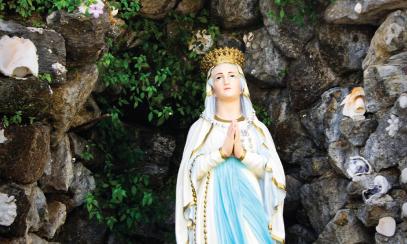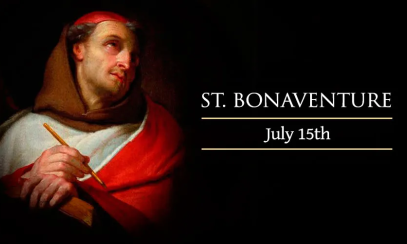Spiritual Guidance Helps Awaken Us to the Presence of God
“There is in each of us an inner voice of Love that says: ‘You are the Beloved of God!’ ” -- Father Henri Nouwen
We all need help to find our way in life. We need help as we wrestle with the big questions life asks: Who am I? What is my purpose? Which is my path? Who walks with me? Underneath these questions is a more fundamental one: How do I respond to the presence of God, Holy Mystery, in my life. And how that question is answered is the beginning to the answer of all others. We cannot do it alone; we need guidance.
Spiritual guidance comes in many forms. The church as a community of faith, with its liturgical life, provides guidance for us. Some people may be guided by the tradition of a particular religious community, such as Franciscan or Benedictine spirituality. We may also be guided by wise individuals we know and respect. We may follow a figure from the past whose wisdom lives. St. Edith Stein found inspiration and guidance in the autobiography of St. Teresa of Avila (The Book of her Life). After reading Teresa’s account of her journey, Stein concluded, “This is the truth.”
Formal Spiritual Direction
Today, some individuals are opting for a one-to-one relationship with a person who is trained specifically for the role of a “spiritual director.” Numerous programs now prepare individuals, whether lay, religious, or cleric, to engage in this ministry.
Father William Barry, S.J. is an acknowledged leader in this ministry. His definition of spiritual direction is: “Help given by one believer to another which enables the latter to pay attention to God’s personal communication to him or her, to respond to this personally communicating God, to grow in intimacy with this God, and to live out the consequences of the relationship.”
This understanding of spiritual direction assumes God wants a relationship with us. God initiates the relationship, and we meet God in our human experience. Spiritual direction, then, is one prayerful person accompanying another person in her or his efforts to pray. This director helps the other to listen to their experience and respond to the God met in the experience. It is not a matter of having ideas about God, but relating to God. St. Teresa of Avila counsels, “…the important thing is not to think much, but to love much.” Teresa understood prayer to be “nothing else than an intimate sharing between friends.”
We are the Beloved of God
Because the Holy Spirit is the basic director of our spiritual life, no one is left without access to spiritual guidance. St. Thérèse of Lisieux, after writing a letter each month to her spiritual director, and receiving back one letter each year, said, “My heart quickly turned to the Director of directors, and it was He who taught me that science hidden from the wise and prudent and revealed it to little ones.” Jesus was her director! “But it is especially the Gospels,” she said, “that sustain me during my hours of prayer, for in them I find what is necessary for my poor little soul.”
The fundamental truth is, we are the Beloved of God. God is a presence, a transcendent presence, in the depth of our lives. We are already in a relationship with God, acknowledged or not. Spiritual guidance, in whatever form, helps us to own that identity. We grow into the answers to our most basic questions. As that relationship with God grows, our desires are clarified. What we want changes. We learn to want what God wants in a consonance of desire. In union with God, we live in a way that promotes the Rule of God, a world more peaceful, just, and loving.



